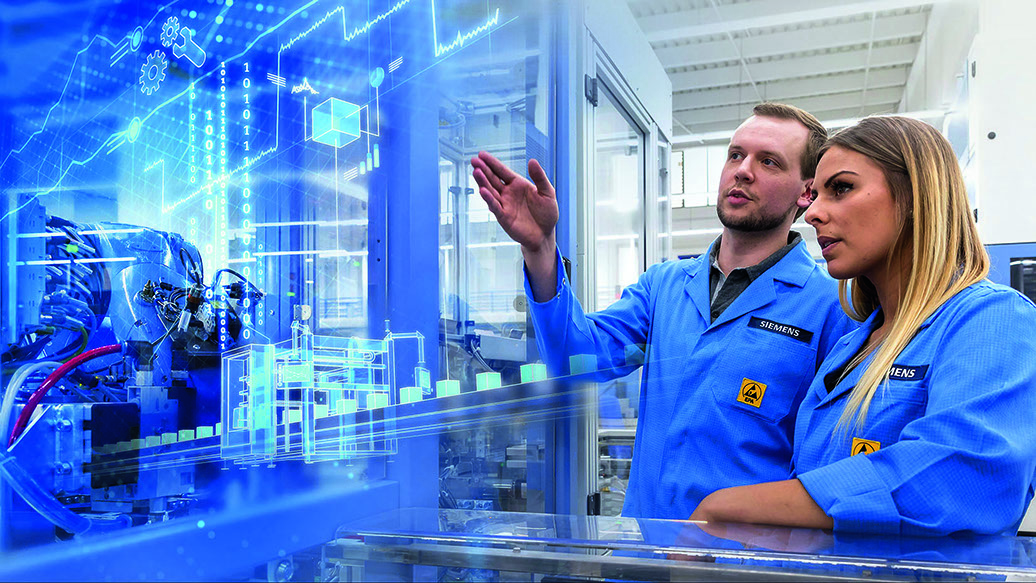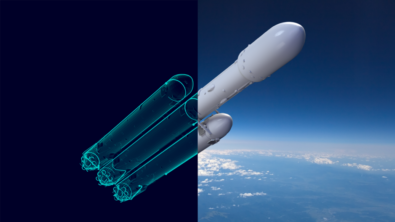Low-cost competition & a new workforce – IoT miniseries ep. 2

To showcase the different ways to optimize your industrial environment, this miniseries – Future-proof with the IoT – will be taking over the regularly running series The Digital Transformation: Solution for Industrial Machinery.
Listen to episode two of the Future-proof with the IoT mini-series on the Siemens website or on all your favorite podcast platforms.
In episode one of the miniseries Future-proof with the IoT, our guests and guest-host Jörg Ludwig covered two growing trends in industrial manufacturing – new business models and hyperautomation. Both of which have been shaping the industry and have accelerated change during the economic downturn over the pandemic. Continuing their discussion, our experts will talk about low-cost competition and a next generation workforce, two more industry trends shaping the future of the industrial machinery industry.
While not the complete story, low-cost competitors were a direct driver of hyperautomation practices in industrial machinery over the past decade. Instead of trying to compete on direct price of components, companies sought to optimize their existing workflows to get products to customers faster and with higher quality. Along with this expanded feature set to combat low-cost competition, some companies opted to provide virtual integration capabilities in order to ensure machines were operational almost immediately after delivery.
The emergence of feature rich products in industrial machinery is not without hurdles as our experts discuss in the episode, the loss of workforce experience through retirement is a growing problem especially in the United States’ manufacturing sector. These technical positions leaving the shop floors has resulted in lost knowledge of how the factory operates and is compounded by the expected shortage in new employees. A Deloitte study from 2018 is quoted that over two million positions in the industry will go unfilled as the experienced generation retires in the US alone.
But not all is lost for the sector, here are some of the solutions discussed in the episode:
- The collaboration board provides an avenue to document common machine problems on the shop floor. Traditionally this would be document based and remain in the individual shop floor, but by digitalizing this information from the experienced workforce, it can be shared across the organization. If multiple facilities are running the same machinery, it doesn’t require that a problem reveal itself at each location before it can be dealt with holistically by linking it to Internet of Things (IoT) data captured by the machines.
- While the total number of workers for the next generation of manufacturing will be lower, the experience they bring to the table may help accelerate the digital transformation and lessen the impact of the worker shortage. As many of the next generation are considered digital natives, having grown up with computers as an everyday part of life, adopting the new digital strategies will be more intuitive.
- The perception of cloud solutions is also changing the path of digitalization, prompted by the need to compete with low-cost alternatives and a shrinking experienced workforce. Implementing the operations normally done on-site, in the cloud enables full-enterprise optimization. That could be around the world or across the city but working with each facility as part of a greater system provides far more opportunities to innovate.
This is only a fraction of what our experts discuss in episode two of the miniseries Future-proof with the IoT and I would highly recommend listening to the entire conversation for more specifics on how these changes are evolving. And if you have not yet listened to episode one, they cover hyperautomation and the new business models of the industry in great detail. Or tune in for episode three, as our experts to discuss how exactly IoT fits into the solutions for the industrial machinery industry.
Siemens Digital Industries Software drives the transformation to enable a digital enterprise where engineering, manufacturing and electronics design meet tomorrow. Xcelerator, the comprehensive and integrated portfolio of software and services from Siemens Digital Industries Software, helps companies of all sizes create and leverage a comprehensive digital twin that provides organizations with new insights, opportunities and automation levels to drive innovation.
For more information on Siemens Digital Industries Software products and services, visit siemens.com/software or follow us on LinkedIn, Twitter, Facebook and Instagram.
Siemens Digital Industries Software – where today meets tomorrow
Jörg Ludwig – Since 2018, Jörg has been in the sales enablement team for MindSphere and since October 2020 also for Mendix, globally responsible for the creation of learning paths, enablement sessions, and value selling trainings and workshops. Prior to Siemens, Jörg ran his own business as a Value Selling trainer and coach for more than 7 years. He gained Sales experience and expertise from over 16 years in global Software Sales organizations.
Heiko Dickas – Heiko is the Team Leader of the digitalization team since the beginning of 2017 in the Bad Neustadt motor factory. His scope is being an enabler for the production unit in terms of digitalization. Heiko has been with Siemens for more than 30 years in different functions.
Colm Gavin – With over 20 years of experience in the Siemens Digital Factory, Colm works on business development for digitalization topics as they pertain to Siemens SW and Factory Automation, specifically virtual commissioning, Industrial IoT, Industrial Edge and AI topics.
Matthias Lutz – Matthias joined Siemens 14 years ago, starting in supply chain and procurement department. In 2015, he moved to the industrial customer service organization, focusing on Industrial IoT and digital services.
Sebastian Oeder – Sebastian is Head of the production unit main motors in the Bad Neustadt motor factory. He has a background as a production manager at Siemens Energy and as a consultant at Siemens Corporate Technology.


